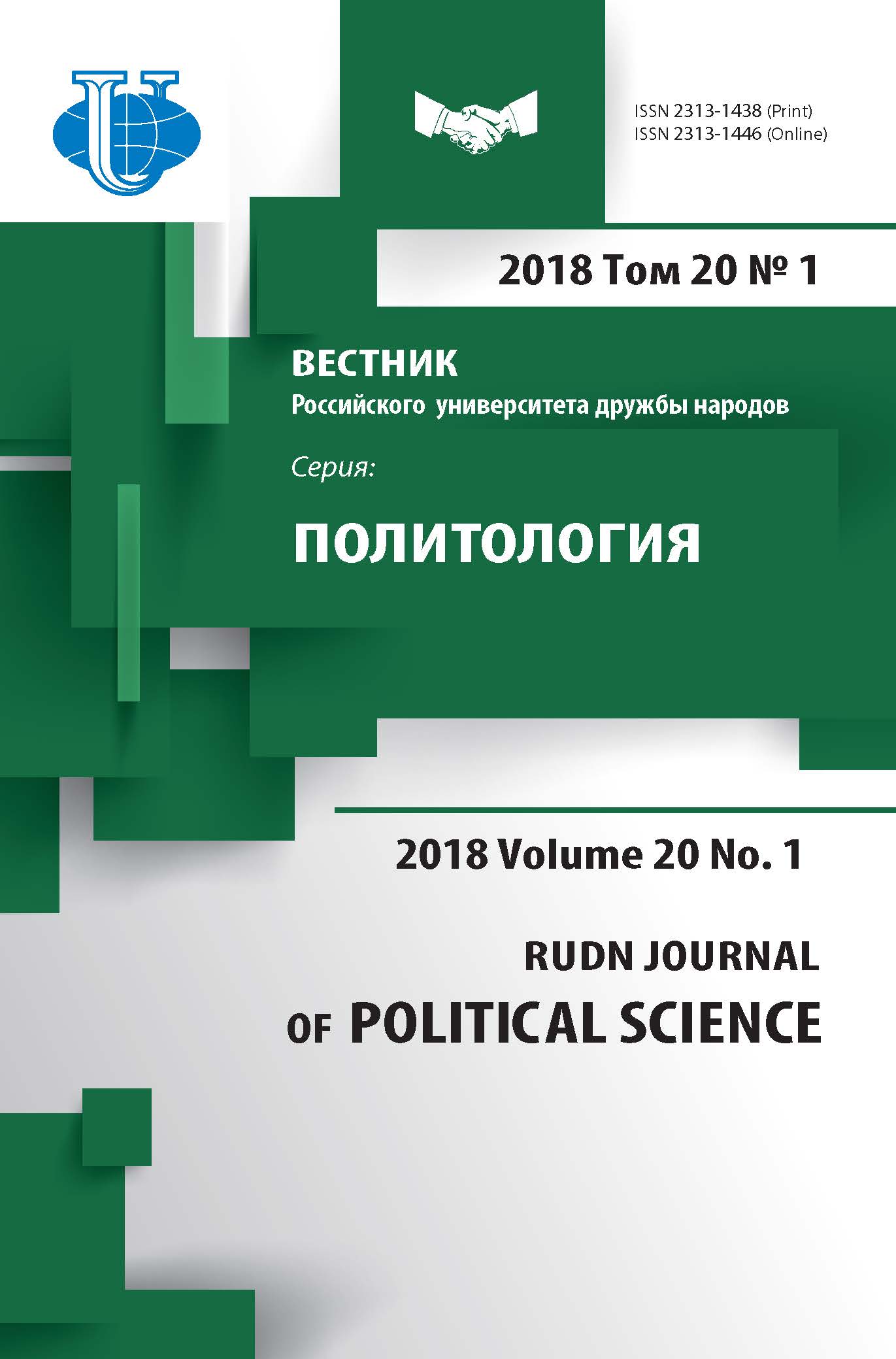Computer Games as a Tool for Implementation of Memory Policy (on the Example of Displaying Events of The Great Patriotic War in Video Games)
- Authors: Belov SI1
-
Affiliations:
- Central Museum of the Great Patriotic War 1941-1945
- Issue: Vol 20, No 1 (2018)
- Pages: 96-104
- Section: Some actual problems of political science
- URL: https://journals.rudn.ru/political-science/article/view/18133
- DOI: https://doi.org/10.22363/2313-1438-2018-20-1-96-104
Cite item
Full Text
Abstract
The presented work is devoted to the study of the practice of using computer games as a tool of the memory policy. The relevance of this study determines both the growth of the importance of video games as a means of forming ideas about the events of the past, and a low degree of study of this topic. As the goal of the author's research, the research is to identify the prospects for using computer games as an instrument for implementing the memory policy within the framework of the case of the events of the Great Patriotic War. The empirical base of the work was formed due to the generalization of the content of such video games as “Call of Duty 1”, “Call of Duty 14: WWII”, “Company of Heroes 2” and “Commandos 3: Destination Berlin”. The methodological base of the research is formed due to the involvement of elements of descriptive political analysis, the theory of operant conditioning B.F. Skinner and the concept of social identity H. Tajfel and J. Turner. The author comes to the conclusion that familiarization of users with the designated games contributes to the consolidation in the minds of users of negative stereotypes regarding the participation of the Red Army in the Great Patriotic War. The process of integration of negative images is carried out using the methods of operant conditioning. The integration of the system of negative images into the mass consciousness of the inhabitants of the post-Soviet space makes it difficult to preserve the remnants of Soviet political symbols and elements constructed on their basis identity. The author puts forward the hypothesis that in the case of complete desovietization of the public policy space in the states that emerged as a result of the collapse of the USSR, the task of revising the history of the Great Patriotic War will be greatly facilitated, and with the subsequent departure from the life of the last eyewitnesses of the relevant events, achieving this goal will be only a matter of time. Presumably, these risks can be eliminated by harmonious integration of the legacy of the Soviet political and historical myth into the model of the memory policy developed in Russia and other post-Soviet states.
About the authors
S I Belov
Central Museum of the Great Patriotic War 1941-1945
Author for correspondence.
Email: belov2006s@yandex.ru
PhD, deputy head of scientific-methodical department
Bratiev Fonchenko str., 10, Moscow, Russia, 121170References
- Beglaryan G.A. Transformatsiya traditsionnykh tsennostei v sovremennykh videoigrakh. Filosofskie voprosy estestvoznaniya i tekhnicheskikh nauk Materialy mezhdunarodnoi nauchnoi konferentsii. 2014. (In Russ).
- Belov S.I. Vzaimootnosheniya Krasnoi Armii i katolicheskoi tserkvi na territorii Pol'shi v 1944 g. Istoricheskie, filosofskie, politicheskie i yuridicheskie nauki, kul'turologiya i iskusstvovedenie. Voprosy teorii i praktiki. 2015; 10-2. (In Russ).
- Belov S.I., Nikiforov Yu.A. Pravovoe regulirovanie vzaimootnoshenii voennosluzhashchikh Krasnoi Armii i grazhdanskogo naseleniya Pol'shi v period 1944—1945 gg. Lokus: lyudi, obshchestvo, kul'tury, smysly. 2016; 4. (In Russ).
- Belyantsev A.E., Gershtein I.Z. Obraz strany cherez komp'yuternuyu igru: istoriko-politicheskii aspect. Vestnik Nizhegorodskogo universiteta im. N.I. Lobachevskogo. 2010; 6. (In Russ).
- Vdovichenko S.S. Freimovyi analiz rechevykh aktov v angloyazychnom diskurse videoigr (na materiale videoigry Dota 2). Filologicheskie nauki. Voprosy teorii i praktiki. 2015; 8-2. (In Russ).
- Zaretskaya O.V. Zavisimost' ot komp'yuternykh onlain-igr kak raznovidnost' addiktivnogo povedeniya. Sotsial'naya psikhologiya i obshchestvo. 2016; Vol. 7(3). (In Russ). doi: 10.17759/sps.2016070308.
- Iglin D.A. Videoigry kak tekhnologiya politicheskoi kommunikatsii. Sborniki konferentsii NITs Sotsiosfera. 2015; 10. (In Russ).
- Kalmykov V.A. Videoigry i patriotizm: virtual'nye ekstrasotsial'nye praktiki v formirovanii obraza Rossii. Vestnik RGGU. Seriya: Politologiya. Istoriya. Mezhdunarodnye otnosheniya. Zarubezhnoe regionovedenie. Vostokovedenie. 2014; 1. (In Russ).
- Kalmykov V.A. Obraz Rossii i industriya komp'yuternykh igr. Kommunikativnye platformy dlya sotsial'nykh i mediinykh innovatsii Materialy 1-i Mezhdunarodnoi nauchno-prakticheskoi konferentsii. 2014. (In Russ).
- Marenich N.A. Khudozhestvennye priemy postroeniya otkrytogo proizvedeniya v videoigrakh. APRIORI. Ceriya: Gumanitarnye nauki. 2014; 1. (In Russ).
- Nikiforov Yu.A. Istoriya kak tekhnologiya sotsial'nogo proektirovaniya. Vestnik Moskovskogo gosudarstvennogo gumanitarnogo universiteta im. M.A. Sholokhova. Istoriya i politologiya. 2011; 2. (In Russ).
- Novikova O.N. Virtual'naya igra kak sredstvo formirovaniya lichnostnoi identichnosti detei i podrostkov. Pedagogicheskoe obrazovanie v Rossii. 2014; 2 (In Russ).
- Prodazhi igr serii Call of Duty preodoleli otmetku v 250 millionov kopii. Available from: http://gamebomb.ru/gbnews/14940. (In Russ).
- Reprintseva E.A. Evolyutsiya sovremennoi igrovoi kul'tury molodezhi. Obshchestvo. Sreda. Razvitie. 2007; 1. (In Russ).
- Sarna A.Ya. Ubit' Ben Ladena. Komp'yuternye simulyatsii i virtual'naya real'nost' novostei v sovremennykh SMI. Mezhdunarodnyi zhurnal issledovanii kul'tury. 2012; 3. (In Russ).
- Skurlatova E.D. Filosofiya voiny i ee voploshchenie v komp'yuternykh igrakh. Homo holistic: chelovek tselostnyi sbornik nauchnykh statei prepodavatelei kafedry filosofii YuUrGU, studentov, magistrantov i aspirantov vuzov. Ministerstvo obrazovaniya i nauki Rossiiskoi Federatsii, Yuzhno-Ural'skii gosudarstvennyi universitet Kafedra filosofii. Chelyabinsk; 2015. (In Russ).
- Tret'yakov V. Videoigra kak novyi tip povestvovaniya (obzor angloyazychnykh knig o videoigrakh). Novoe literaturnoe obozrenie. 2016; 1. (In Russ).
- Sharov K.S. Onlain-videoigry kak faktor sotsial'nykh deviatsii. Tsennosti i smysly; 2015; 3. (In Russ).
- Galkin D.V. Techno-art hybrids or art, politics and digital technology in the cultural dynamics of late XX-th century. Gumanitarnaya informatika. 2008; 4. (In Russ).
- Tajfel H., Turner J. The social identity theory of intergroup behavior. The psychology of intergroup relations. Chicago; 1986.
















